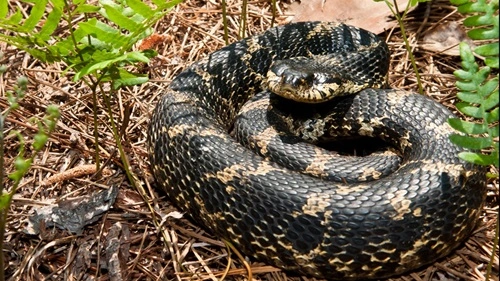Yes, it is illegal to kill most snakes in Arkansas without a valid reason. Arkansas law provides significant protections for native snake species, recognizing their vital role in the ecosystem. However, exceptions exist for instances where a snake poses an immediate threat to human life or property.
Legal Protections for Snakes in Arkansas
In Arkansas, all native snakes are classified as nongame wildlife and are protected under state law. The Arkansas Game and Fish Code prohibits the killing, capturing, or possession of nongame species without proper authorization. This protection applies to both venomous and non-venomous snakes.
Exceptions to the Rule:
- Immediate Threats: If a snake poses a direct threat to a person, such as being in a residence or attacking a pet, it can legally be killed.
- Permits for Removal: Property owners may apply for special permits from the Arkansas Game and Fish Commission (AGFC) for nuisance wildlife control, including snakes.
- Venomous Snakes: While not explicitly exempt, venomous snakes like copperheads and cottonmouths are often addressed under self-defense exceptions.
Importance of Snake Protection
Arkansas is home to approximately 36 species of snakes, with only six classified as venomous. These reptiles play a crucial role in controlling rodent populations and maintaining ecological balance. Killing snakes unnecessarily disrupts ecosystems and can lead to increased pest issues.
Venomous Species in Arkansas:
- Copperhead
- Cottonmouth (Water Moccasin)
- Timber Rattlesnake
- Pygmy Rattlesnake
- Western Diamondback Rattlesnake
- Texas Coral Snake
Non-venomous species, such as rat snakes and garter snakes, are harmless and provide natural pest control.
Penalties for Killing Protected Snakes
Violating Arkansas wildlife laws by killing a protected snake without justification can result in:
- Fines: Up to $1,000 per offense.
- Community Service: Potential requirement for wildlife conservation activities.
- Restitution: Payment for the illegal taking of protected wildlife.
The AGFC emphasizes education and awareness to reduce unnecessary killings and to promote coexistence with snakes.
Alternatives to Killing Snakes
If you encounter a snake on your property:
1. Leave It Alone: Most snakes will leave the area if left undisturbed.
2. Contact Professionals: Call local animal control or a licensed wildlife removal service to safely relocate the snake.
3. Modify the Environment: Remove attractants like tall grass, woodpiles, and food sources to deter snakes from inhabiting the area.
Non-lethal measures are encouraged to manage snake populations while preserving their ecological benefits.
Recent Updates in Arkansas Snake Laws
As of 2024, Arkansas has not introduced significant changes to its snake protection laws. However, the AGFC continues to promote public education on snake identification and coexistence. Efforts are being made to dispel myths about snakes and to emphasize their importance in ecosystems.
Related FAQs
Q1. Is it legal to kill a venomous snake in Arkansas?
Ans: Yes, if the snake poses an immediate threat to human safety or property, killing it is generally permitted.
Q2. Are all snakes protected in Arkansas?
Ans: Yes, all native snakes are protected as nongame wildlife. Killing them without justification or permits is illegal.
Q3. Can I remove a snake from my property?
Ans: Yes, but it should be done humanely. Contact a licensed wildlife removal service or seek guidance from the AGFC.
Q4. What should I do if I find a snake in my house?
Ans: Avoid approaching the snake and contact local animal control or a licensed removal service for assistance.
Q5. What are the penalties for killing a snake in Arkansas?
Ans: Penalties include fines up to $1,000 and possible community service. Restitution fees may also apply.
Conclusion
While it is generally illegal to kill snakes in Arkansas, exceptions exist for situations involving immediate threats. Understanding and respecting wildlife laws not only helps protect the environment but also ensures compliance with state regulations. When encountering a snake, prioritize non-lethal alternatives and consult professionals for assistance.


